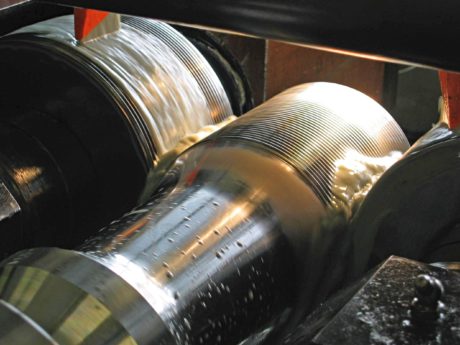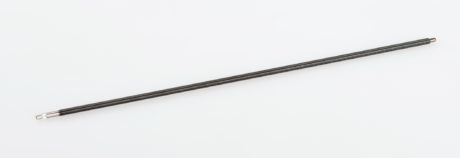The very slim and remarkably long thread spindles of Eichenberger, integrated in the pipettes of the most recent high-tech analysing and dispensing systems, comply with the most challenging performance requirements coming from Life Science sector.
The sector of Life Sciences is developing at a breath-taking speed – new technologies allow today what still seemed impossible a few year ago. Intelligent analysis and dispensing methods are becoming more and more important, but especially so in the sector of medical technology. Headlines show, for example, that for the first time, it was possible to decipher the complete DNA of a 400,000 year old human being. Products are increasingly smaller and lighter, materials are extremely complex or aggressive and are of molecular dimension; the range of variants is broadening, and thus also the number of recipes. Even the most minute deviations in the highly-complex laboratory technology may cause essential quality defects.
For example, the fields of medicinal and laboratory technology continuously make new and exceptional demands in regard to dimension and quality on mechanical drive elements. For Swiss company Eichenberger Gewinde AG, the solutions-oriented dialogue with customers is always a driving factor for innovation.

A focused exchange of information and ideas is essential for understanding and implementing the needs and expectations of business partners. For this specialist company in threading, non-standard threads are highly appreciated challenges. The very slim and remarkably long thread spindles of Eichenberger integrated in the pipettes of the most recent high-tech analysing and dispensing systems comply with the most challenging performance requirements.
Genome analysis is a method to determine the genetic code of an individual human being. In this process, the structure and function of the entire genotype is checked for a hereditary disposition that may trigger a disease in the carrier, characterise a certain transmitter status or reflect a susceptibility regarding certain environmental impacts. In genome analysis, genetic material is deciphered by means of DNA sequencing. Profiling the genomic signature of a cell is important to decide which therapies should best be applied; it is also an important aspect of developing new medication. This parallel analysis of several thousand individual results in a small quantity of biological sample material requires great speed and precision. In addition, the mandatory sensitivity makes exceptional demands on a multi-purpose genomics workstation.
A pitch accuracy of G5
The 2-starts spindles of Eichenberger designed specifically for such work stations, with a diameter of 3 mm and a pitch of 1 mm ensure smooth work processes. When taking samples, efficiency – next to accuracy – is a top priority. The ideally adjusted spindle pitch ratio increases the dynamic movement of the syringes, which are guided by an absolutely reliable measuring and control unit. Excellent sliding properties with a friction coefficient of less than 0.1, ensure for minimal friction and noiseless running. The delicate spindle rods guarantee a pitch accuracy of G5 (< 0.023 mm / 300 mm).

In doing so, the great challenge was to meet the specification of the length of 185 mm for the delicate spindles with a diameter of 3 mm at zero tolerance in regard to straightness and concentricity. When development, manufacture and quality assurance are all provided by a single source – as is the case with Eichenberger – flexibility in regard to the manufacture of prototypes, including end machining and thread rolling tools can be achieved within a very short timespan.
Contactless dispensing systems are an attractive alternative to conventional pipette-based systems and allow for the accurate dispensing of quantities down to the submicro-range (of 0.5 to 1,000 µl). An absolutely reliable displacement of fluids is generated through pressure, which means that reagent reservoirs can be fully closed or separated. Fully automated cleaning of the laboratory equipment additionally supports the diagnosis process. In conclusion, such advanced dispensing systems can substantially reduce the costs per test and at the same time increase the reliability of the test results. The small robust, clean-room compatible spindle by Eichenberger is produced in a cold roll process and additionally enhances the cost factor. It is a counterpart to the high-priced, polished spindle. Furthermore, the ‘cold rolled’, compressed thread surface a substantial increase in strength, which is indispensable for demanding long-life requirements.



